New research shows that dementia risk is best predicted by combining genetic vulnerability with cardiovascular disease markers, revealing a more precise and actionable way to identify who is most likely to develop the condition.
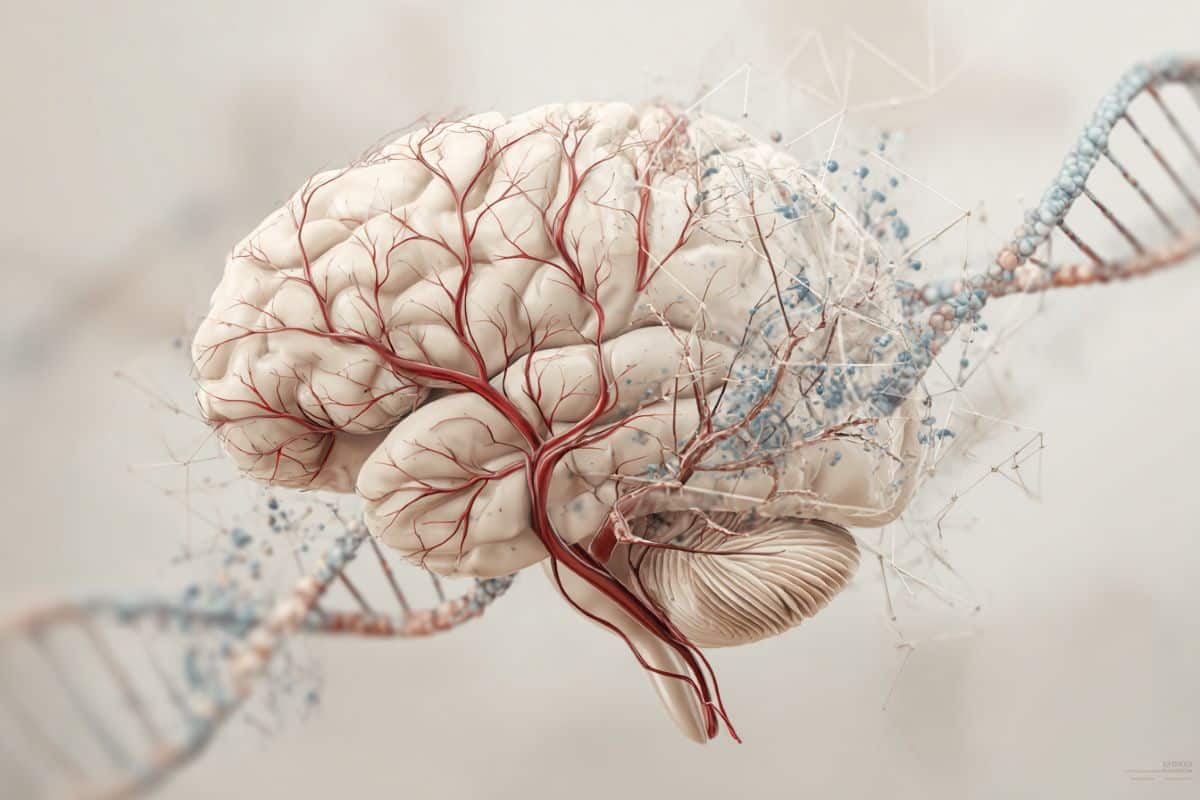

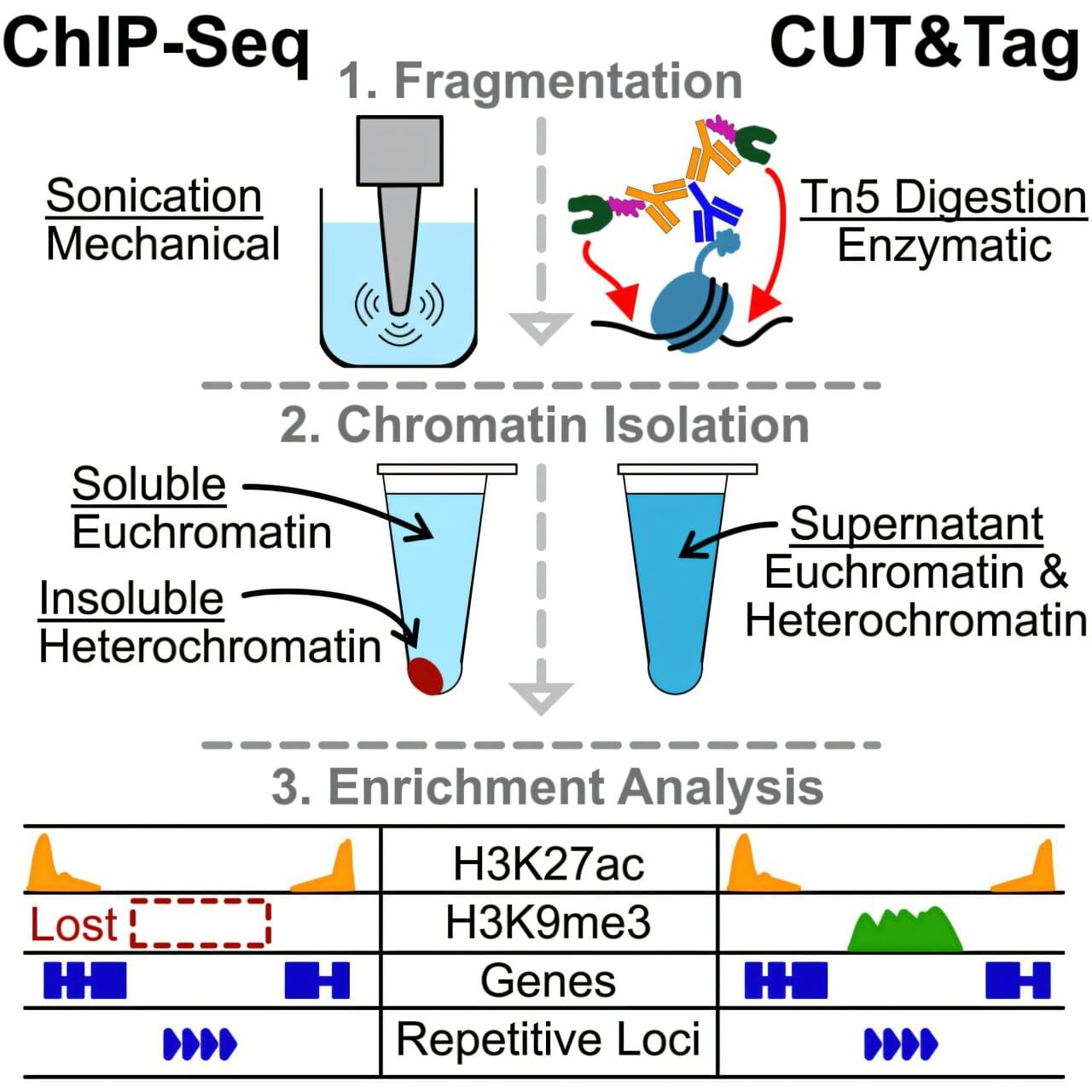
Cornell researchers have found that a new DNA sequencing technology can be used to study how transposons move within and bind to the genome. Transposons play critical roles in immune response, neurological function and genetic evolution, and implications of the finding include agricultural advancements and understanding disease development and treatment.
In a paper published in iScience, senior author Patrick Murphy, Ph.D. ‘13, associate professor of molecular biology and genetics in the College of Agriculture and Life Sciences, and co-authors demonstrate that a high-resolution genome mapping technique called CUT&Tag can overcome shortcomings in existing sequencing methods to enable study of transposons.
Once derided as “junk DNA,” transposons make up half the human genome and are descended from ancient viruses encountered by our evolutionary ancestors.
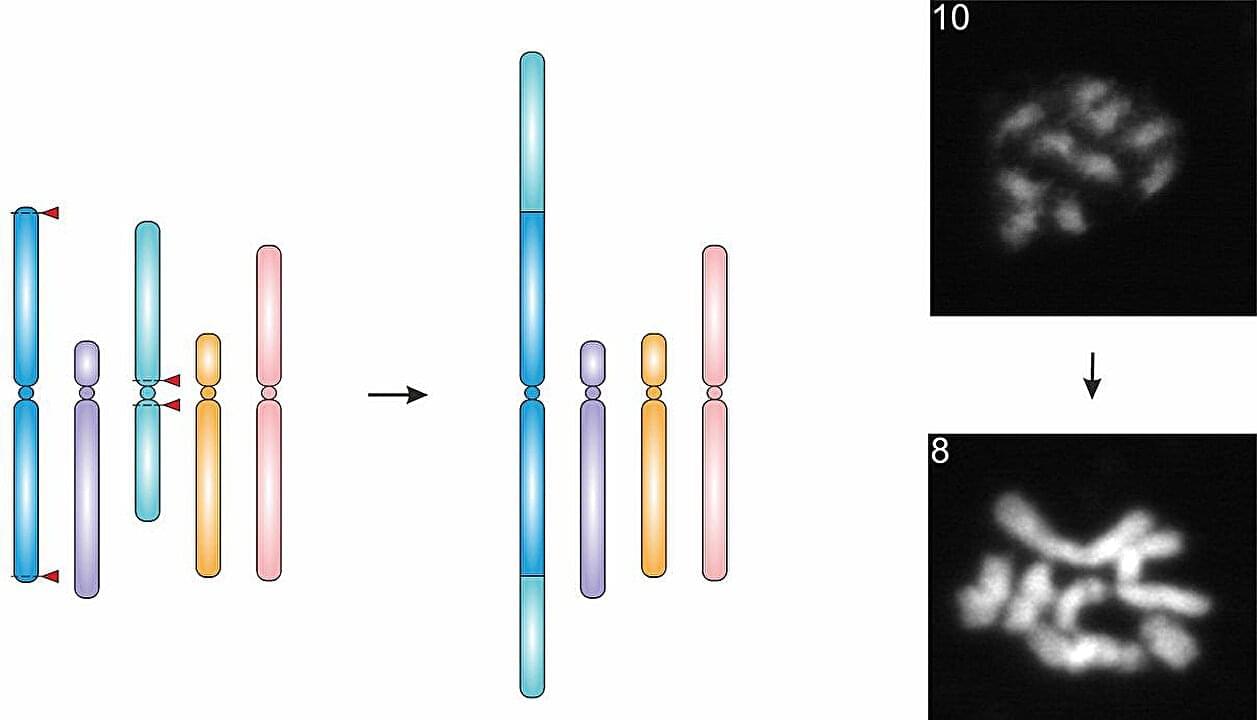
Higher yields, greater resilience to climatic changes or diseases—the demands on crop plants are constantly growing. To address these challenges, researchers of Karlsruhe Institute of Technology (KIT) are developing new methods in genetic engineering.
In cooperation with other German and Czech researchers, they succeeded for the first time in leveraging the CRISPR/Cas molecular scissors for changing the number of chromosomes in the Arabidopsis thaliana model organism in a targeted way—without any adverse effects on plant growth. This discovery opens up new perspectives for plant breeding and agriculture. The results have been published in Science.
The CRISPR/Cas molecular scissors enabled the KIT researchers in recent years to alter not only genes, but also chromosomes. This way, it is possible to combine wanted traits or eliminate unwanted ones in plants in a targeted manner.
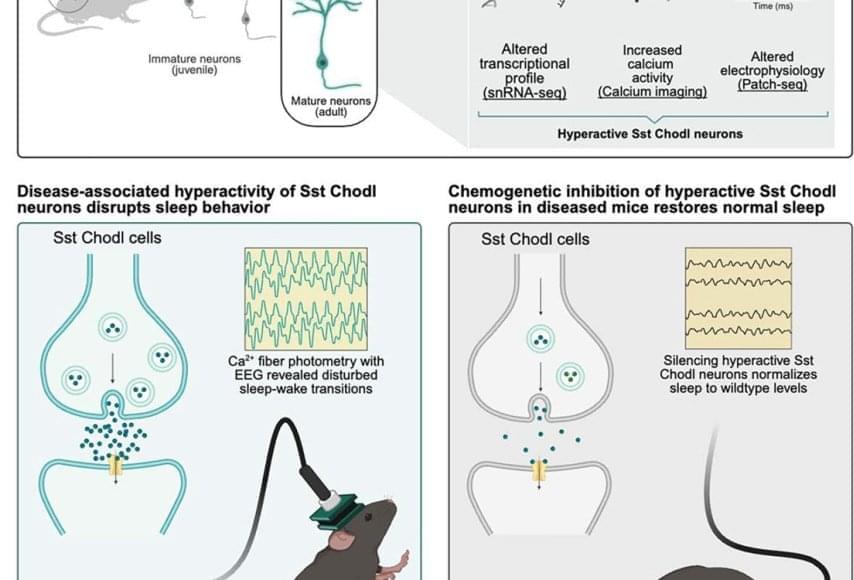
Schizophrenia stems from abnormal brain development, which can begin even before birth. Yet symptoms typically don’t appear until later in life.
“For a long time, the brain is able to compensate for developmental errors and maintain relatively normal function. But at some point, it’s like a chain snapping — the brain can no longer compensate, and that’s when symptoms emerge. Until that point, however, prevention should be possible,” says one of the study’s first authors.
They investigated when this turning point occurs. By tracking brain development from the fetal stage to adulthood, they found that dramatic changes happen late in the brain’s development. Up until the transition from childhood to adolescence, molecular and functional changes in the brain were rather minor, likely explaining lack of symptoms before adolescence.
The researchers have worked with mice carrying a specific genetic mutation known as “15q13.3 microdeletion syndrome.” In humans, this syndrome is associated with epilepsy, schizophrenia, autism, and other neurodevelopmental disorders.
“We know that sleep is often disrupted in people with psychiatric disorders, so we chose to use sleep as a behavioral marker—something we could observe. We examined both the mice’s behavior and the activity of a specific type of brain cell. Our findings show that one particular cell type (γ-aminobutyric acid (GABAergic) projecting neurons) is significantly affected in the test animals compared to healthy mice,” explains the author.
These GABAergic rare brain cells are often overlooked because they make up only a tiny fraction of the brain’s total cell population. Nevertheless, they play a crucial role in regulating many brain functions.
The new study not only demonstrates a link between this specific type of brain cell and sleep — it also shows that the mice’s sleep patterns began to resemble those of healthy mice when researchers reduced the activity of the cell type in question.

Researchers at Karolinska Institutet in Sweden have identified a brain circuit that can drive repetitive and compulsive behaviors in mice, even when natural rewards such as food or social contact are available. The study has been published in the journal Science Advances and may contribute to increased knowledge about obsessive-compulsive disorder and addiction.
Both animals and humans can become stuck in certain behaviors, but exactly how this is regulated in the brain has been unknown. Now, researchers have been able to show that a specific nerve circuit in the brain can put behaviors into a kind of “repeat mode,” where mice continue to perform the same actions over and over again, even when there is no longer any reward.
The researchers investigated a neural circuit that runs from the nucleus accumbens, part of the brain’s reward system, to a region in the hypothalamus, which in turn is connected to the lateral habenula, an area that processes unpleasant experiences. By activating this circuit using optogenetics, a method in which nerve cells are controlled by light, the researchers were able to induce a negative state in mice that led to repetitive behaviors such as digging and sniffing—even when food or other rewards were available.
Join us on Patreon! https://www.patreon.com/MichaelLustgartenPhD
Discount Links/Affiliates:
Blood testing (where I get the majority of my labs): https://www.ultalabtests.com/partners/michaellustgarten.
At-Home Metabolomics: https://www.iollo.com?ref=michael-lustgarten.
Use Code: CONQUERAGING At Checkout.
Clearly Filtered Water Filter: https://get.aspr.app/SHoPY
Epigenetic, Telomere Testing: https://trudiagnostic.com/?irclickid=U-s3Ii2r7xyIU-LSYLyQdQ6…M0&irgwc=1
Use Code: CONQUERAGING
NAD+ Quantification: https://www.jinfiniti.com/intracellular-nad-test/
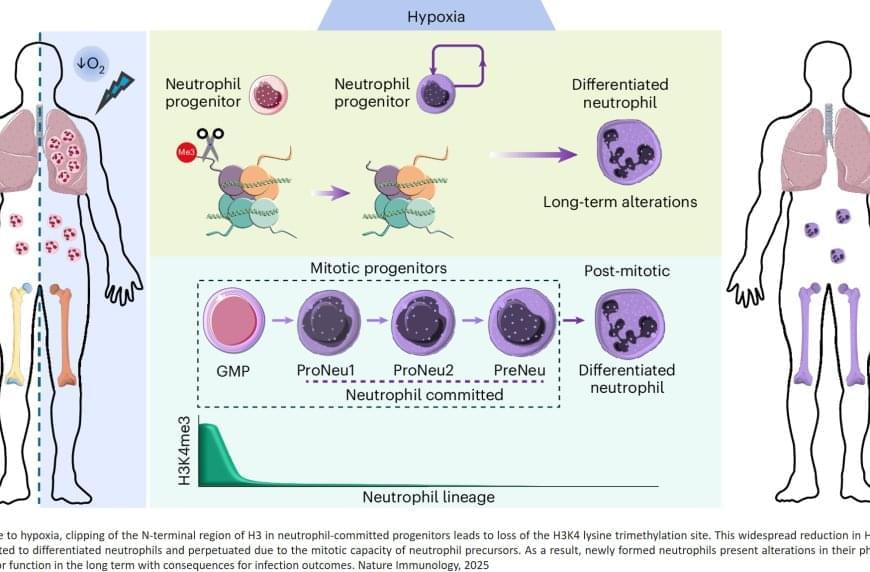
Low oxygen levels in the blood can alter the genetic makeup of key immune cells, weakening the body’s ability to fight infection, new research shows.
Scientists found that oxygen deprivation – known as hypoxia – changes the genetic material of immune cells called neutrophils, reducing their capacity to destroy harmful microbes.
The team discovered that low oxygen appears to leave a lasting mark on the bone marrow cells that produce neutrophils, meaning the impact can persist after oxygen levels return to normal.

A sweeping genomic effort in Taiwan has revealed something that global precision medicine has long overlooked, that the best way to predict disease is to study the people who will be living with its consequences. Researchers at Academia Sinica have now shown that building genetic risk tools tailored to Han Chinese populations can transform how common illnesses are forecast and understood.
In work published in Nature on October 15, 2025, scientists analyzed genomic and clinical data from more than half a million participants in the Taiwan Precision Medicine Initiative. By conducting the largest genome wide association analysis of Han Chinese individuals to date, they developed the first population specific polygenic risk score models for diseases ranging from type 2 diabetes to autoimmune disorders to heart disease, achieving markedly stronger accuracy than tools based on European data. “This project marks a milestone for precision medicine in East Asia,” said Dr. Cathy S. J. Fann, senior corresponding author at Academia Sinica. “By integrating large scale genomic and clinical data, we are building predictive models that truly reflect the real genetic architecture of our population.”

Researchers from Curtin University in Australia and multiple universities in Ethiopia report that prenatal folic acid and multivitamin supplementation is associated with a roughly 30% lower risk of autism spectrum disorder (ASD) in children, based on an umbrella review of existing systematic reviews and meta-analyses.
Global estimates in the reviewed material place ASD prevalence at up to 1% of children. ASD affects reciprocal social interaction, nonverbal communication, and understanding of social relationships. Co-occurring conditions frequently include epilepsy, depression, anxiety, attention deficit hyperactivity disorder, sleep disturbance, and self-injury.
Previous studies found that both genetic mutations and environmental influences contribute to ASD risk, with prenatal maternal nutrition identified as one modifiable environmental factor. Within that broader category of prenatal maternal nutrition, folic acid and multivitamin supplements are among the most accessible interventions offered to women before and during pregnancy.
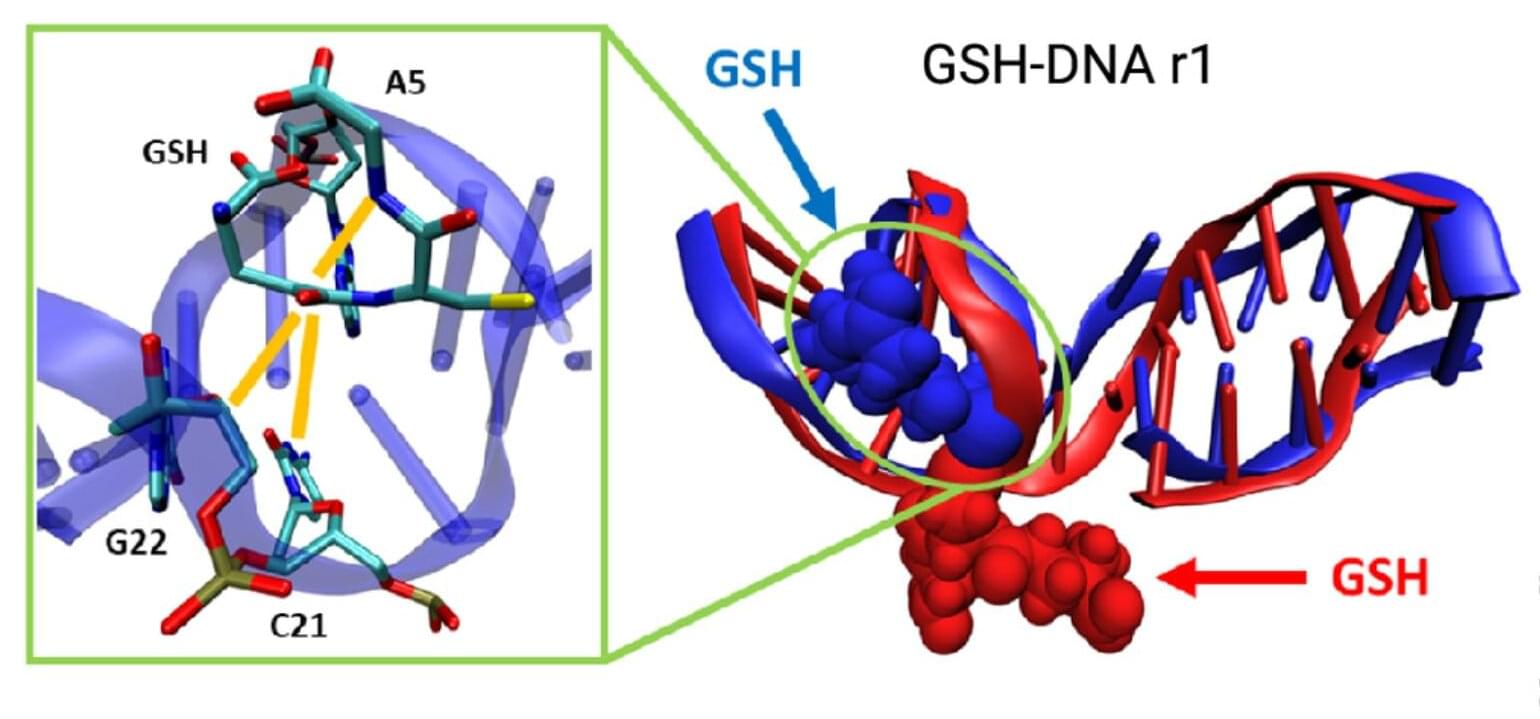
A previously unknown type of DNA damage in the mitochondria, the tiny power plants inside our cells, could shed light on how our bodies sense and respond to stress. The findings of the UC Riverside-led study are published today in the Proceedings of the National Academy of Sciences and have potential implications for a range of mitochondrial dysfunction-associated diseases, including cancer and diabetes.
Mitochondria have their own genetic material, known as mitochondrial DNA (mtDNA), which is essential for producing the energy that powers our bodies and sending signals within and outside cells. While it has long been known that mtDNA is prone to damage, scientists didn’t fully understand the biological processes. The new research identifies a culprit: glutathionylated DNA (GSH-DNA) adducts.
An adduct is a bulky chemical tag formed when a chemical, such as a carcinogen, attaches directly to DNA. If the damage isn’t repaired, it can lead to DNA mutations and increase the risk of disease.